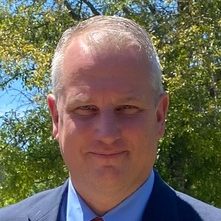Pastoral work is stressful, whether a full-time pastor with staff or a bi-vocational pastor in the middle of nowhere with a congregation of twenty. The difference often lies in the formal education of the two. Generally speaking, the full-time pastor often has some sort of formal seminary training. But for the often rural, bi-vocational pastor, that is not an option.
A formally-educated versus a non-formally-educated pastor does not qualify or disqualify a man. Too many times, the idea of a seminary-educated pastor in the rural church is not looked upon with glee. Yet, to the larger city church of hundreds or thousands of congregants, the lack of seminary training is looked upon with disdain. For one, the formal education spells some sort of liberal thinking, and to the other, lack of education means he is somehow not qualified to “preach” to them.
I am by no means against a solid, biblical seminary education. If I could, I would do so right now, at age 50. But for most rural pastors in a bi-vocational setting, that is not an option, even with online classes available. However, lack of formal training does not excuse bad doctrine.
There is no excuse for the rural pastor to be without knowledge and education, even if it is not from a formal institution. Bad doctrine has grown out of bad preaching in the rural church for generations. I know. I have been there, witnessed it, and even fell into some of it.
What can a man do? Glad you asked. Paul gives Timothy sound advice in 2 Timothy 2:15: “Be diligent to present yourself approved to God as a workman who does not need to be ashamed, accurately handling the word of truth.” One of the most dangerous places to be as a pastor is one who handles the Word of God lightly or carelessly. Too often, people think that rural pastors do not need any “education” because they have the Holy Spirit. Well, it is true the Spirit of God works in us and lead us to the truth in the pages of Scripture. But to approach ministry with the idea that you cannot learn how to study, teach, and preach the text is just plain foolish.
Pastors are often drawn into local, moralistic, and even unbiblical traditions handed down. Many of these traditions are external righteousness; dress, music, Bible versions, and the like. They pound the pulpit with the legalistic traditions, while ignoring the opportunity to learn solid biblical exegesis. I once was like this.
What I have learned at this point in my life is God has provided ample resources to get a solid education from right where I am at. Back in the early 2000s, I sat down with a dear pastor friend who was attending Southern Baptist Theological Seminary. I asked what he thought about elders in the church. That launched me into a theological transformation, not based on men’s ideas, but God’s Word. I began to read and study the Word of God from the perspective of “what does the Scripture say” not “what do I want it to say.”
I have been in bi-vocational ministry for over 25 years. I am not in a place, nor was I, to do a full-time seminary education. But since that faithful dinner question, I have built a library of solid books about doctrine, life, ministry, and preaching. At this time, I do not have a theological degree, but not only do I have the Word of God and the Holy Spirit to teach, I have faithful resources to help. Here is what I have learned.
Have a good solid software program or website where you can get word definitions from. I recommend Blue Letter Bible, Bible Gateway, or even Logos. Once you discover what the Greek word means, the syntax behind it, etc., that brings about a whole new meaning to the text.
Get a good library of rich theological books. I recommend a solid systematic theology book, such as Grudem’s Systematic Theology or MacArthur’s Bible Doctrine book. Do not limit to just reference theology books, build a solid library of books by proven faithful men. I know they are just men, but they can be a tremendous help.
You can access ample resources on the internet such as through ministries like G3, Grace to You, Founders, and many more, which have resources on church membership, doctrine, and preaching, just to name a few. Do not settle for sub-par preaching in the pulpit because you are not formally educated. Study to “show yourself approved” so you can shepherd the sheep God has given you. Feed them what the Bible says, not what traditions say.
Finally, do not settle for the idea that you are not smart enough or educated enough. You have the Bible, access to original languages, commentaries, Bible helps, and hopefully a mentor who can help answer questions. Preach the Word, uncover the text, teach the people what the Bible says, and you will, in time, see a difference in your congregation.




